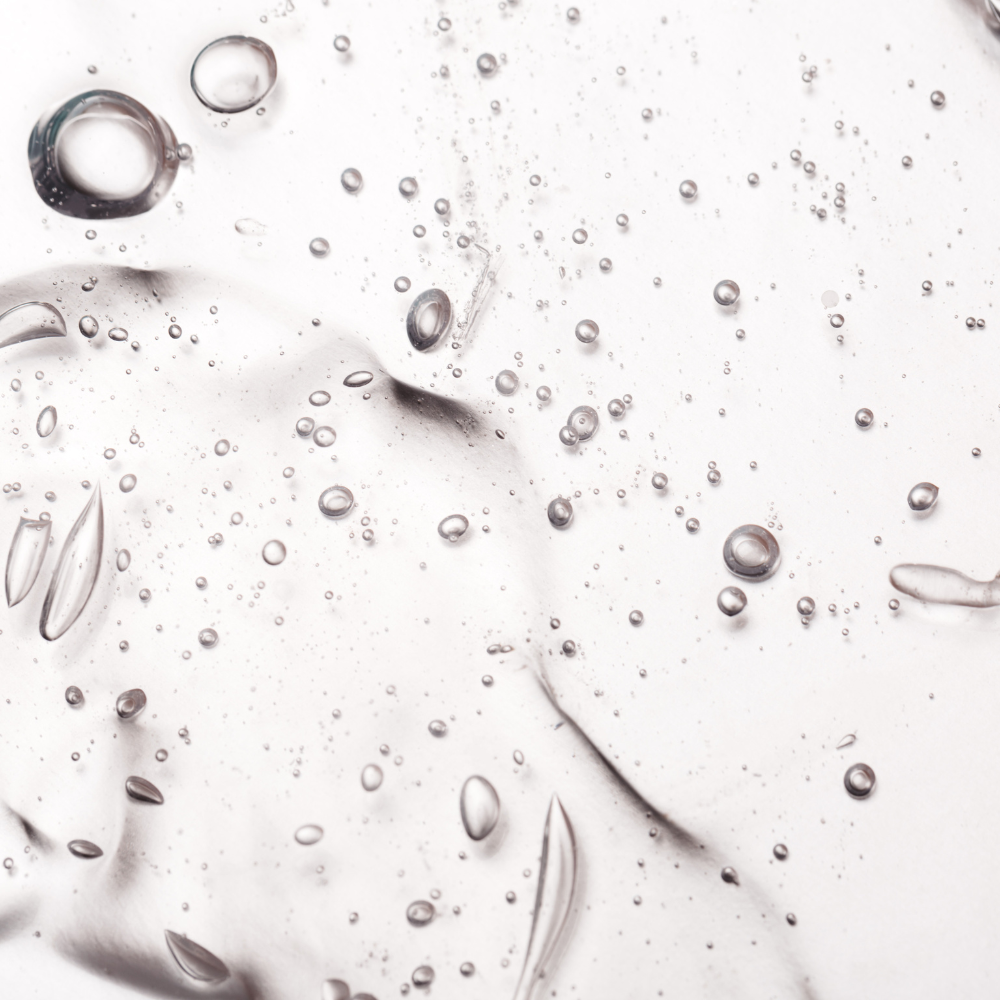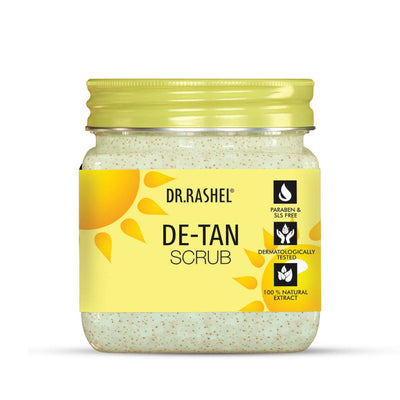
Table of Contents
- What is Hyaluronic Acid?
- What does Hyaluronic Acid do for your skin?
- What are the benefits of using Hyaluronic Acid?
- Ingredients that work well with Hyaluronic Acid
- How to incorporate Hyaluronic Acid in your skincare routine?
- To shorten it
- FAQ’s
Hyaluronic Acid is what comes to mind when you want an extremely versatile skincare ingredient. Hyaluronic Acid has become the jack of all trades, an ingredient adapted in not just skincare but also in hair and body products. If your focus is on anti-aging products, Hyaluronic Acid can play a pivotal role in your skincare routine.
Hyaluronic Acid is naturally produced in our body to keep your skin hydrated, lubricate your joints to reduce friction and provide structure to skin tissues. However age has an impact on its production and thus why you need to incorporate it in your skincare!
This blog provides an explanation of Hyaluronic Acid for skin, its science-backed benefits and more. So let's dive into it without much delay!
What is Hyaluronic Acid?
Hyaluronic Acid is a naturally occurring compound that is found majorly in connective tissue in the human body and is essential in maintaining the skin's moisture balance. It is the main component that provides your skin with structure.

It has a clear and sticky texture that keeps skin moist and elastic. Hyaluronic Acid is good for skin because It acts like a humectant that attracts and retains moisture in the outer layer of the skin. The main purpose of Hyaluronic Acid is to keep your body hydrated, moisturized and give your skin a plump appearance.
It is found in abundance in the body, however its levels decrease with time leading to visible signs of aging such as saggy skin wrinkles and fine lines. Using topical Hyaluronic Acid can help replenish loss of moisture and promote a youthful looking complexion.

What does Hyaluronic Acid do for your skin?
Size definitely plays a role in this case!
The advantages of Hyaluronic Acid depend on its molecular weight and concentration. Now molecular weight means how “big” the Hyaluronic Acid molecule is. A larger molecular weight of Hyaluronic Acid is beneficial and effective in increasing skin elasticity, reducing wrinkles and skin roughness.
When applied to the skin, Hyaluronic Acid acts as a sponge that soaks in water and retains it in the skin’s layers. This helps prevent transepidermal water loss (TEWL) and keeps the skin hydrated and soft.
What are the benefits of using Hyaluronic Acid?
Here are a few Hyaluronic Acid benefits for face:
Hydrates the skin
Despite your skin type, Hyaluronic Acid is essential to keep the skin moisturized. It is the best skin care ingredient that retains moisture in the skin. Hyaluronic Acid helps improve skin texture by fighting off dryness or patchy skin and makes the skin supple and radiant.
Heals wounds
Hyaluronic Acid helps maintain the skin's moisture which is very important for the skin regeneration process. This natural process is involved in healing wounds, helping stimulate the healing process and reducing the risk of further damage. The Hyaluronic Acid benefits for acne are reducing skin inflammation and breakouts.
Has anti-aging properties
If you deal with wrinkles and sagging skin, then Hyaluronic Acid can effectively reduce their appearance and make your skin feel firm and elastic. Well hydrated skin is free of fine lines and wrinkles and feels more tight. Hyaluronic Acid used for retaining large amounts of water that keeps the skin moisturized 24/7.
Enhances skin absorption
Hyaluronic Acid is the VIP entry pass for various skincare ingredients. When your skin is hydrated thoroughly, it is more likely to absorb skincare products and allow them to work effectively. Ingredients like Vitamin C or Retinol are best paired with Hyaluronic Acid to keep your skin healthy.
Ingredients that work well with Hyaluronic Acid
You know you can count on Hyaluronic Acid to be there when youre looking to enhance the effectiveness of your skincare products. Hyaluronic Acid can perfectly align with the following ingredients:
Vitamin C
Hyaluronic Acid used together with Vitamin C can provide your skin with an antioxidant and anti-aging effect that is unmatched. Vitamin C will provide protection to your skin from environmental stressors and Hyaluronic Acid will hydrate the skin and reduce fine lines and wrinkles.
Retinol
Combining Hyaluronic Acid with retinol can take its effectiveness on another level. Retinol enhances the process of cell turnover and promotes collagen production. While Hyaluronic Acid minimizes dryness or irritation caused by retinol and maintains the skin hydration.
AHAs
AHAs are chemical exfoliants that improve skin texture and tone and when combined with Hyaluronic Acid, they both become a powerful couple. Common AHAs like Glycolic Acid and Lactic Acid promote cell turnover and Hyaluronic Acid makes the skin plump.
How to incorporate Hyaluronic Acid in your skincare routine?
There’s a whole bunch of ways that you can use Hyaluronic Acid in your daily skincare routine. You can use a Hyaluronic Acid face wash to remove impurities from the skin while balancing moisture. You can follow it up with a hydrating cream that will nourish rough and flaky skin and brighten your skin tone.
On a weekly basis you can use a deep cleansing scrub to remove impurities and control oil while boosting skin hydration. Use a soothing gel after exfoliation to protect the moisture in your skin and revive it.
If you're wondering what other skincare products can Hyaluronic Acid be infused with then check our products that are formulated with Hyaluronic Acid.
To shorten it,
Hyaluronic Acid helps maintain a youthful skin appearance and tackle skin issues that come with age. Hyaluronic Acid is a magical ingredient that maintains water content by slowing the rate of water evaporation and keeps it moisturized for a long time. It can be incorporated in skincare routine for multiple skin types and provide the best results.
This summer, all you need are the benefits of Hyaluronic Acid to achieve a healthy and hydrated skin!
FAQ’s
Does hyaluronic acid lighten skin?
Hyaluronic Acid does not directly work on the skin to lighten it but it provides hydration which can make your skin appear radiant.
Is hyaluronic acid good for skin?
Absolutely! Hyaluronic Acid is good for the skin as it keeps it hydrated and looking like a smooth and youthful version of itself.
How hyaluronic acid works on skin?
Hyaluronic Acid works on the skin by attracting and maintaining water in the outer layers of your skin. It also slows down the speed at which your skin loses water. This helps improve your overall skin texture.
Can I use hyaluronic acid on my face everyday?
Yes, you can use Hyaluronic Acid on your face daily because it’s a gentle and non-irritating ingredient that locks in hydration in the skin.
When is the best time to apply hyaluronic acid?
Hyaluronic Acid is an intensely hydrating ingredient and can be used in both your morning and evening skincare regimen.
What to avoid when using hyaluronic acid?
It is best to avoid using products containing alcohol or strong exfoliating elements when using Hyaluronic Acid as they can cause skin to dry up or get irritated.
Written by Madiha Patel







